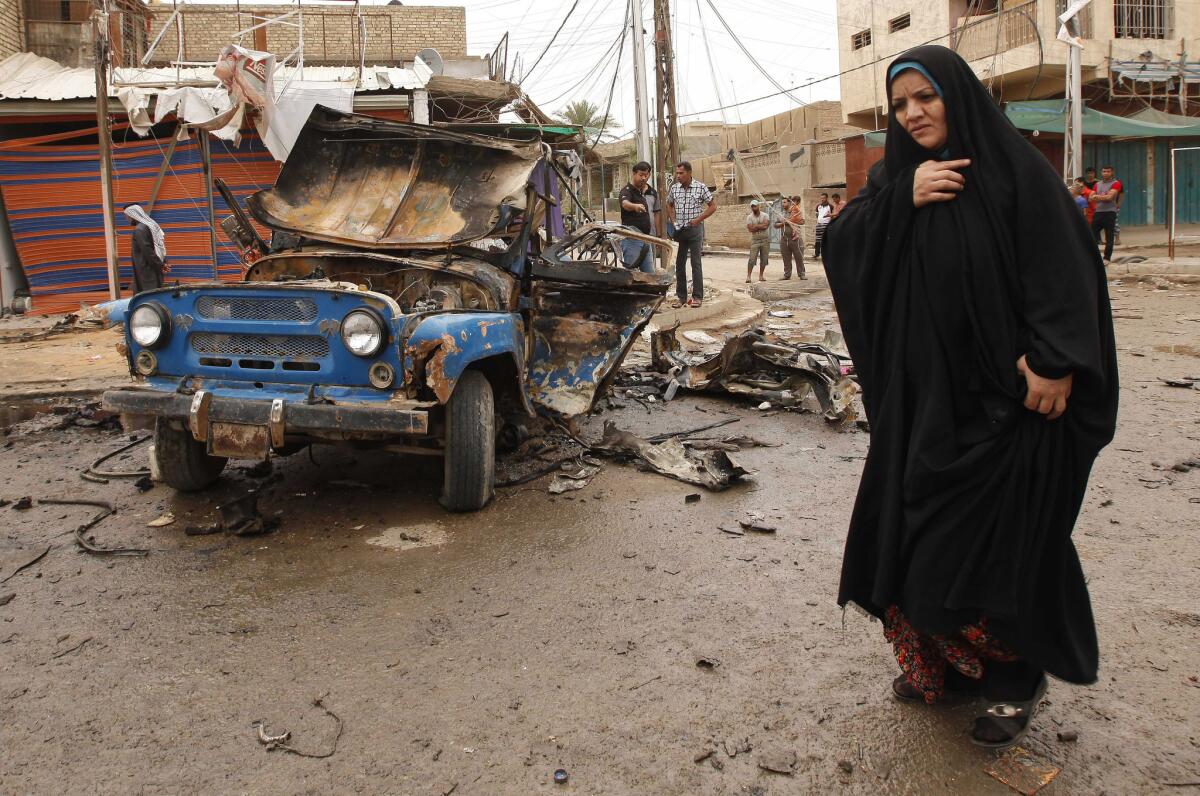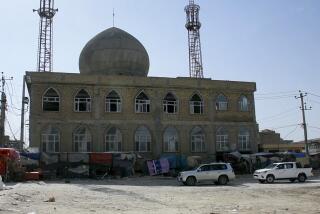Car bombs in Iraq kill at least 65 people

- Share via
BAGHDAD -- Car bombs around Iraq killed at least 65 people Monday as the country’s worst wave of violence since U.S. troops withdrew a year and a half ago continued.
The attacks that occurred by busy commercial streets in Shiite and Sunni areas followed a string of bombings last week that killed more than 200 people.
The ongoing violence has stoked the impression among ordinary Iraqis that the country is sliding back into chaos reminiscent of the civil war that claimed thousands of lives between 2005 and 2008.
Among the most worrying attacks Monday were a pair of car bombings in the southern city of Basra that killed at least 10 people. The previous day, Basra’s security commanders had bragged publicly of new security measures for the region, home to the vast majority of Iraq’s oil production and exports.
The Basra attack drew attention to how even the south is no longer free from strife. The region, with its Shiite majority, has been relatively quiet in comparison with areas in the north such as Baghdad, where Shiites and the country’s Sunni minority live close together.
Iraq’s Sunnis, who believe they have been marginalized since the fall of Saddam Hussein in 2003, have provided the backbone of a tenacious resistance to the country’s Shiite-dominated government.
According to the Associated Press, at least 47 people were killed Monday in 10 car bombings around Baghdad.
“We still have a dream that one day all of us could see Baghdad without an explosion. It seems that day will never come,” said grocery shop owner Aamer Abdullah, 55. “The citizens of Baghdad prefer to stay in their homes instead of going out and getting killed. We blame the politicians and the security forces equally for what happened.”
“Iraqi now is heading to the abyss,” he added.
The bloodshed, coupled with an intractable dispute between Prime Minister Nouri Maliki and Sunni protesters who are demanding a repeal of laws they say discriminate against them, has left many fearful that Iraq is on the verge of splintering.
Security forces opened fire on demonstrators late last month in the northern city of Hawija, sparking days of violence in central and northern Iraq. The United Nations put the death toll for April at 712, making it the deadliest month in Iraq since June 2008.
The situation remains tense between demonstrators and the government, particularly in western Anbar province, where the security forces have demanded the arrest of three protest leaders in the city of Ramadi over the late April killings of five Iraqi security personnel. The protesters insist their leaders are innocent, while the government has amassed troops around Ramadi in response.
In the past week, the government has raided the home of a prominent Sunni tribal leader, further fanning tensions.
ALSO:
From four Iranians, four views of the coming election
Suicide bomb blast kills Afghan provincial leader, 12 others
Tensions rise between China, North Korea over boat held hostage
Alwan is a special correspondent. Times staff writer Ned Parker in New York contributed to this report.
More to Read
Sign up for Essential California
The most important California stories and recommendations in your inbox every morning.
You may occasionally receive promotional content from the Los Angeles Times.










